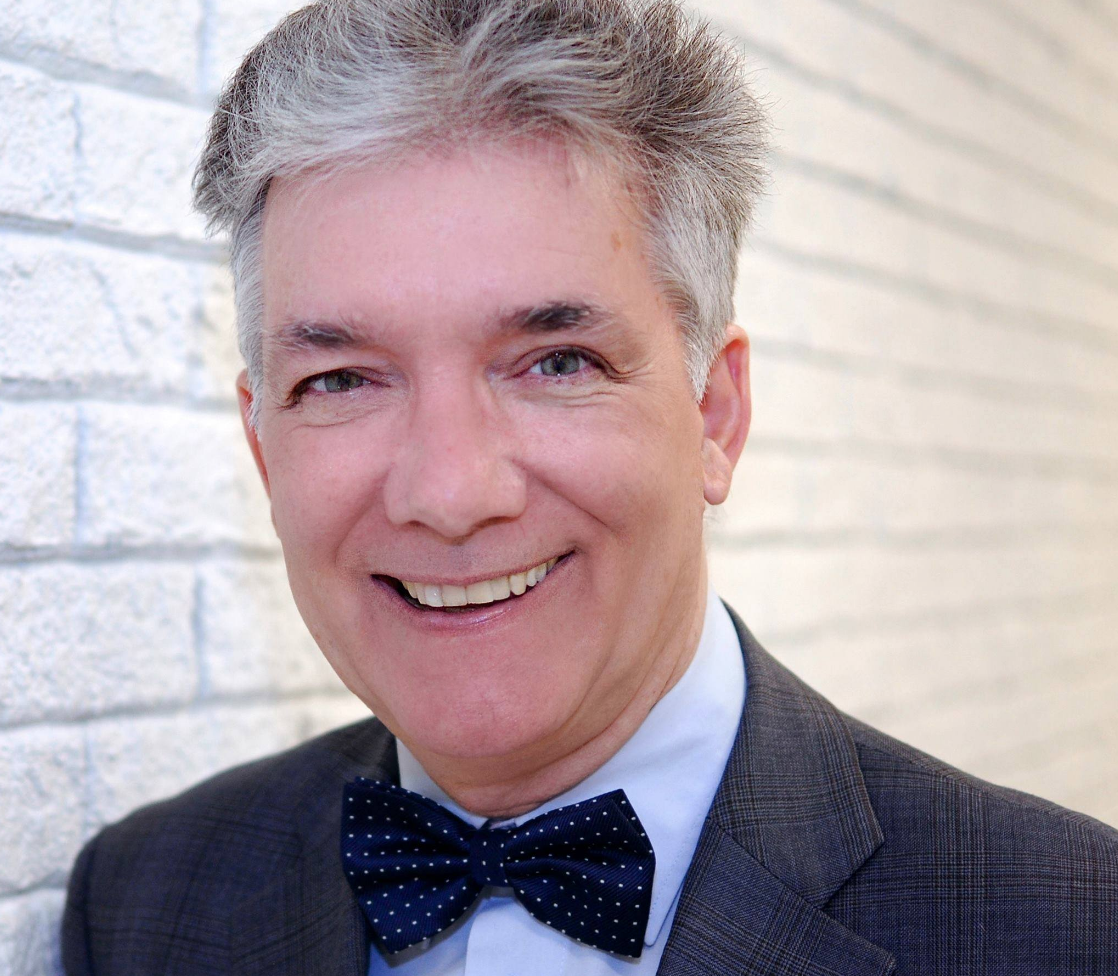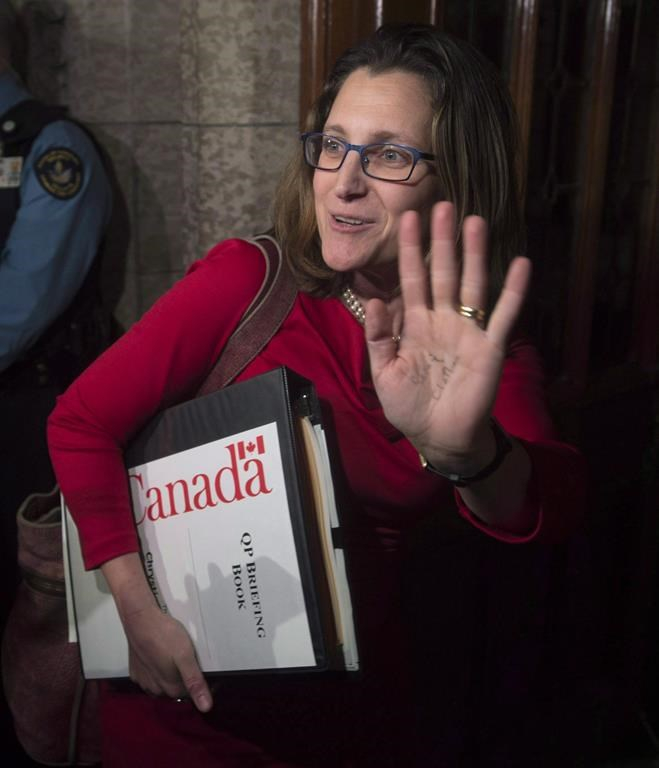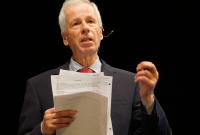Thank you for helping us meet our fundraising goal!
Daniel Turp says he's ready to go all the way to the nation's top court to stop the sale of Canadian-made armoured vehicles to Saudi Arabia.
The Montreal law school professor and former politician said in an interview on Thursday that he is pursuing his battle in Canadian courts as a matter of principle. And he will not give up his fight until the government agrees to respect its own laws, he said.
“I am ready to go to the Supreme Court of Canada because the issue at stake — the issue of the sale of weapons — is so fundamental, it’s worth it," Turp told National Observer. "(The government) is not done hearing about us and our fight."
Turp's comments come after Canada's Global Affairs Minister Chrystia Freeland expressed concerns on Monday about recently emerging videos that appear to show Canadian-made armoured vehicles used in an attack against Saudi Arabia citizens.
Saudi Arabia is widely denounced as one of the world's worst abusers of human rights and has been censured by the European Union and a number of western countries. Saudi Arabia's embassy in Ottawa didn't immediately respond to a request from National Observer for comment.
Canadian export controls prohibit the sale of arms to countries with a "persistent record of serious violations" of their own citizens' human rights. Yet the Trudeau government issued export permits in 2015 for the sale of General Dynamics armoured vehicles to Saudi Arabia, a $15-billion deal that had been approved by the previous Conservative government.
General Dynamics is a London, Ontario-based company and the export deal has been linked to hundreds of Canadian manufacturing jobs.
Turp driven by outrage
Turp, who teaches law at Université de Montréal, launched his challenge in March 2016 after feeling “outraged” that Trudeau’s Liberal government was supporting the deal.
By granting export licenses, Turp, a former provincial and federal legislator with the Parti Québécois and the Bloc Québécois, said the government did not respect their “own explicit laws and rules." He also complained that the deal has been shrouded in secrecy, accusing the federal government of having a “will to hide information."
“We’ve done multiple requests to get (a copy of) the contract, to know how many vehicles are being built, when they will be delivered, and there is a total refusal to give us information...The sale of weapons is being done without any transparency in this country that claims that human rights are very important and that they’re a component of its foreign policy.”
The Canadian government has previously argued that it didn't believe the vehicles would be used to violate human rights, but that it would intervene if evidence came to light suggesting that the equipment was being used in that manner. Last January, the government defeated Turp's challenge when a federal court rejected the law professor's arguments.
Turp said he believes the federal judge Danièle Tremblay-Lamer did not “take into account all the evidence we brought that Saudi Arabia had used military equipment to violate fundamental rights and was satisfied with the decision by the Minister of Foreign Affairs based on a memorandum prepared by his own staff saying there were no reasonable risks based on the fact no Canadian combat-vehicle had been used in the past (in Saudi Arabia) to violate rights.”
He added that he finds the whole situation so “unacceptable” that he will continue his legal battle until a judge tells the government to “respect its own laws and rules”.
Saudi Arabia regularly ranks among “the worst of the worst” human rights offenders, as listed by independent watchdog Freedom House. The oil-wealthy Gulf country has been also been militarily involved in Yemen for the last several years. The United Nations has repeatedly expressed its concern for its "complete disregard" for human life and warned the country that its actions "may amount to war crimes."
Violence within Saudi Arabia itself has flared particularly in recent months where the Shia minority has been targeted in the eastern region.
On July 27, the Canadian government expressed concern about the “escalating violence in eastern Saudi Arabia, which has resulted in civilian and security casualties” and the “recent executions and the decision of the supreme court of Saudi Arabia to uphold the death sentences of 14 individuals.”

Freeland urged to overturn export permit decision
The new video evidence emerged in a recent Globe and Mail investigation. The footage and photos, which surfaced on social media, allegedly show Saudi Arabia using Canadian-made military equipment against its own civilians. Experts consulted by the Globe and Mail identified the vehicles in the video as Gurkha RPVs, produced by the Ontario-based Canadian firm Terradyne Armored Vehicles.
These revelations have given Turp and Trudel Johnston Lespérance, the law firm representing him, the momentum to serve a legal notice to Freeland to overturn the decision of her predecessor, former foreign affairs minister Stéphane Dion, to approve the 14-year export license.
“Your predecessor had formally committed to reconsidering his decision to deliver exportation licenses or to revoke these licenses if evidence (that Canadian-made light armoured vehicles could be used in Saudi Arabia against civilian populations),” lawyer André Lespérance, who represents Turp, wrote in the legal notice.
Freeland has until Sept. 5 to respond. If she doesn’t cancel the export license, Turp plans on continuing his legal fight.
“We gave her this deadline which seems reasonable and we understood the minister wants to investigate (the matter)...but I hope it’s not just (for the government) to stall and to (claim) again that there’s no reasonable risk that Canadian armoured vehicles are being used (in Saudi Arabia),” he said.
Turp is hopeful his fight will bring about change.
“Sometimes a legal fight like this one leads governments to revise their laws and policies and investigate like Ms. Freeland is doing... Appealing to courts like I’m doing, it can lead a government to reflect and be more coherent when acting on a policy which already in 1986 — 30 years ago — said there should be no weapons and military equipment exports to countries which might use them to violate fundamental rights.”
— with files from The Canadian Press






Comments
Thank you/ merci beaucoup, Professor Daniel Turp, for compelling the federal government to attend to its egregious contravention of our own national policies on arms sales.